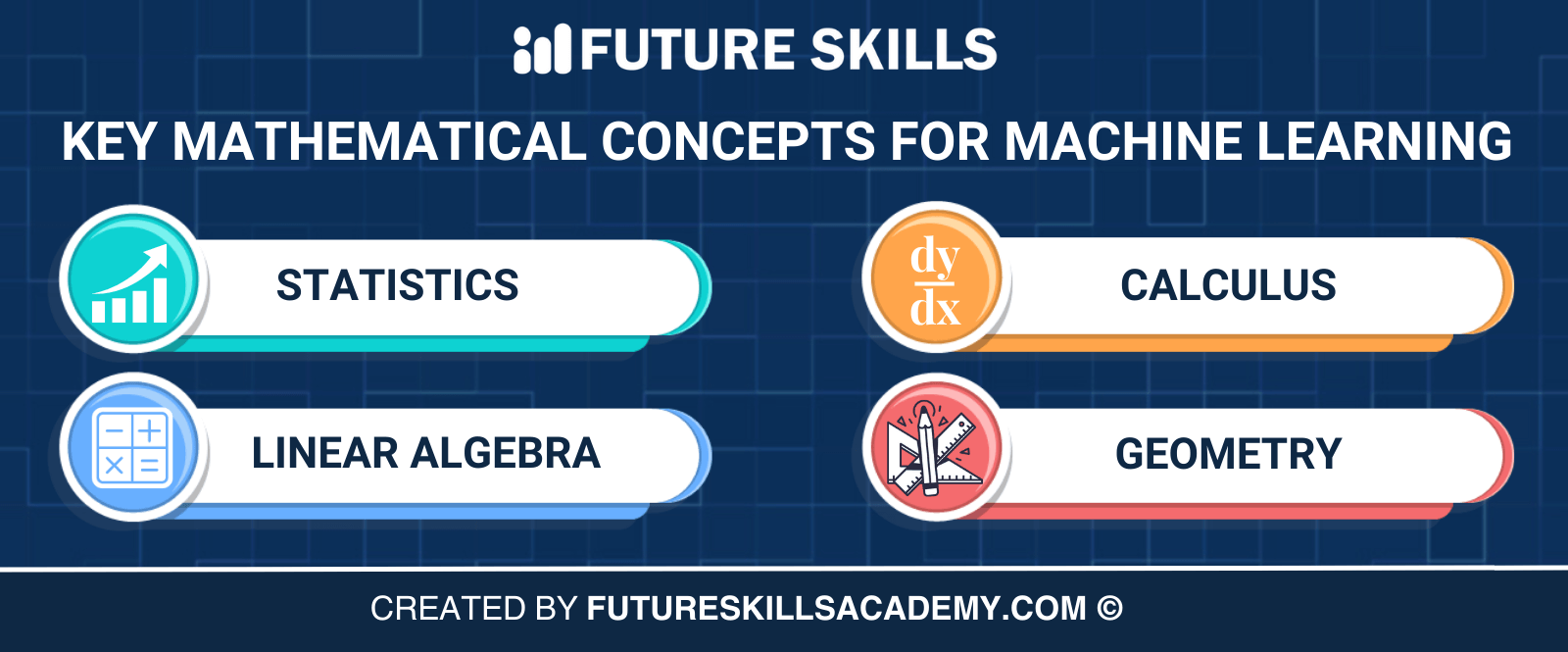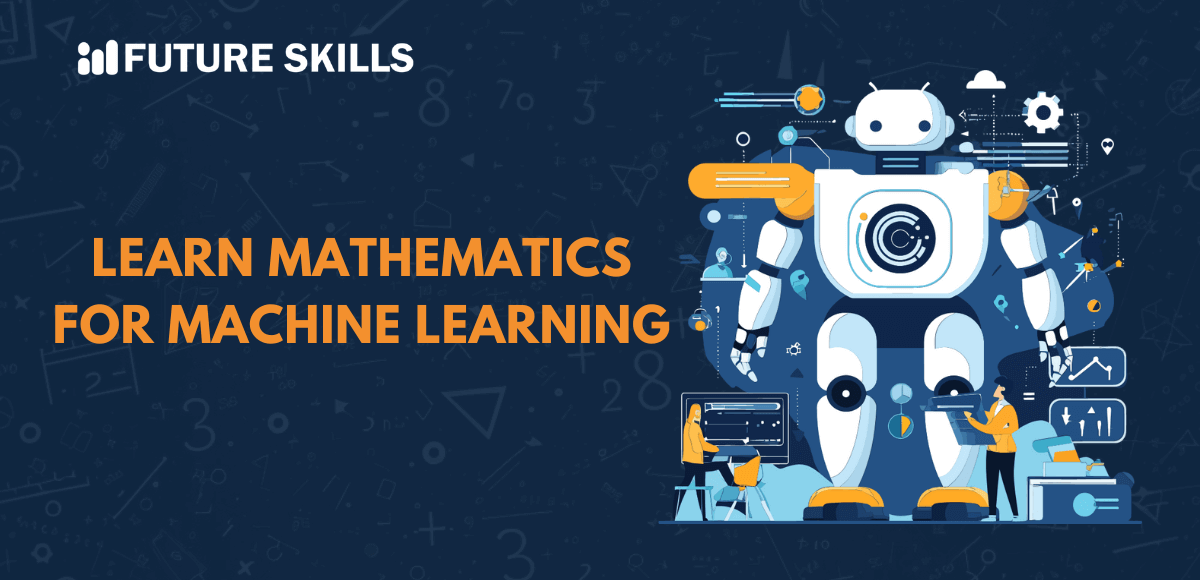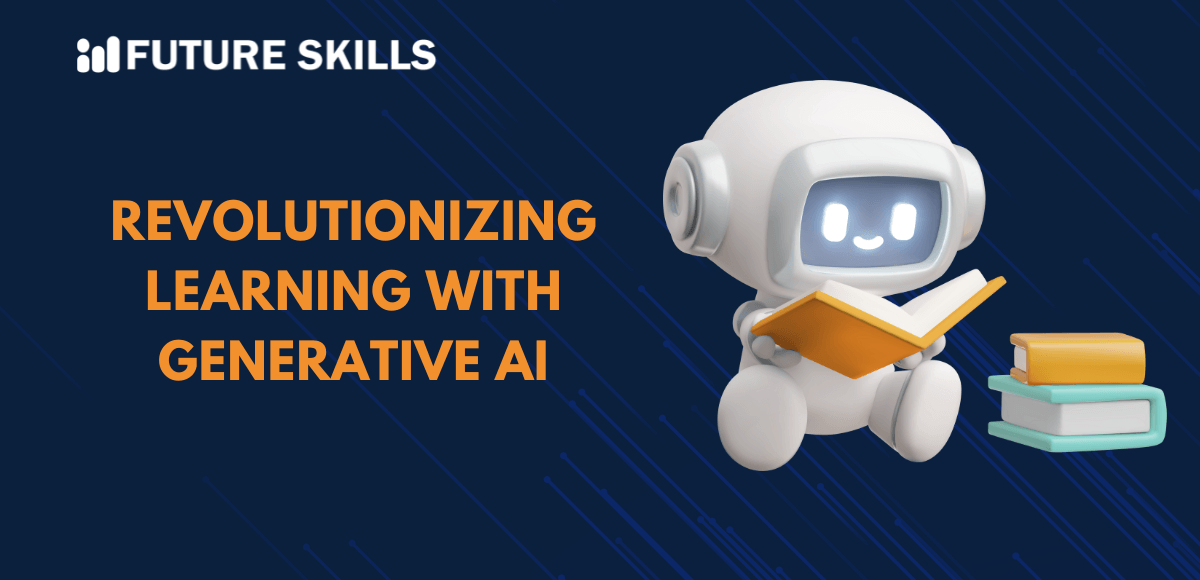Machine Learning, the subdomain of Artificial Intelligence technology, has been gaining significant momentum in the contemporary technology realm. Individuals who are passionate about ML are considering it as a promising career pathway. If you also wish to start your career in ML, having a solid foundation on certain mathematical concepts is fundamental. As math lies at the core of the domain, learning mathematics for machine learning is a must.
Now, you may be wondering – What kind of math is required for machine learning? If so, you must keep in mind that there are a number of topics that you need to focus on. Your proficiency and expertise in topics such as statistics, Calculus, Geometry, and Probability are of high importance.
Moreover, linear algebra for machine learning is a vital concept that you need to work on. By understanding the basics relating to these concepts, you can have a flying career as a Machine Learning professional. Both novices and experienced professionals need to learn maths for machine learning so that they can excel in the field.
Embark on a transformative journey into AI, unlocking career-boosting superpowers through our Certified AI Professional (CAIP)™ Certification program.
Importance of Math in ML
Undoubtedly, your knowledge of mathematics for machine learning can shape your career graph as an ML professional. You need to work on your mathematical skills because you will have to use them to perform your role. For instance, before using a prediction model in ML, you need to evaluate the same. To evaluate the model, you will have to use tools and frameworks based on mathematical concepts. If you have a solid understanding of the relevant mathematical concepts, you can definitely grasp ML in a simple and easy manner.
Before venturing into your journey in the Machine Learning landscape, you need to understand the relevance of math. Your proficiency relating to the core concepts of mathematics for machine learning can help you in the following ways:
- It can help in selecting appropriate algorithms by focusing on elements like training time, accuracy, and model complexity.
- Insight into key mathematical concepts can assist in choosing appropriate validation methodologies as well as parameter values.
- You will be able to identify issues relating to overfitting and underfitting aspects.
- The application of appropriate concepts can aid in ascertaining the accurate confidence interval along with uncertainty.
By being strong in mathematics, you will be able to thrive in the competitive and evolving ML landscape. Due to the high significance of math in ML, machine learning for mathematicians may be quite simple in comparison to individuals without a mathematical background.
Level up your ChatGPT skills and kickstart your journey towards superhuman capabilities with Free ChatGPT Course.
Key Mathematical Concepts in ML

An important question that you should ask yourself is – What kind of math is required for machine learning? By answering this question, you will be able to move forward in the ML domain as a professional. The chief step that you must take to learn mathematics for machine learning involves the identification of essential math concepts. You need to start by strengthening your comprehension of the math topics that are presented below:
-
Linear Algebra
Linear algebra is undoubtedly one of the most important concepts in ML. It basically deals with linear equation systems. An ML professional must know how to frame linear equations. It is one of the chief steps that can help to develop ML algorithms. Linear algebra for machine learning is vital as it has to be applied for diverse purposes like matrix operations, regularization, and covariance matrices. Without a solid understanding of linear algebra, you may feel clueless while working on machine learning algorithms.
-
Statistics
The statistical concept is widely utilized in the machine learning domain. In fact, it acts as one of the core elements of data analytics. By brushing up on your skills and prowess relating to statistics, you can equip yourself to assess, visualize, and interpret data efficiently. In addition to this, you will also be able to uncover rich and valuable insights from data. In order to learn maths for Machine learning at a comprehensive level, a strong foundation in statistics is essential.
-
Calculus
Calculus is yet another important math topic that you need to become proficient in as a Machine Learning professional. The topic concerns continuous transition. Within calculus classic calculus is an important principle that involves the analysis of continuous change relating to functions. By having a solid understanding of calculus, you can comprehend how changes take place in functions over time.
-
Geometry
Geometry is a well-known mathematical concept that revolves around angles, forms, proportions, and measurements of objects. An ML professional needs to be seasoned when it comes to geometry. This is because they may have to use geometric models in a broad range of machine-learning applications. By developing your skills in geometry, you can efficiently use the concept for performing analysis of data, predictions, grouping, etc.
By developing your mathematical skills, you will be able to prepare yourself to adapt to the prevailing ML domain. As you will have to rely on math to work as a machine learning professional, you must start your learning journey. You do not have to feel overwhelmed to learn mathematics for machine learning. A disciplined and systematic learning approach can boost your mathematical skills and add value for you in the ML domain.
Best practices to learn math for ML
Now that you have better familiarity with mathematical concepts that are of relevance in ML, you need to focus on learning them. You may be wondering how you should start learning math for machine learning. A few simple yet effective practices have been identified that can help you in your learning process. Before moving on to the list, you should keep in mind that perseverance and resilience are vital skills that can push you to continuously learn.
-
Choosing the right resources
To learn math and machine learning, you need to choose appropriate learning resources. The good news is that a large number of resources are available online. However, you may find it challenging to choose the appropriate learning materials. While choosing resources such as books, eBooks, articles, and other sources, remember to check the credibility of the authors.
-
Enrolling in a learning course
If you are confused about how to learn math or ML, you can enroll in a course. By seeking help from professionals and engaging with fellow learners, you can learn mathematics for ML in a methodical manner. Moreover, by comparing your performance with that of other learners, you can evaluate your performance. Moreover, you can identify the areas that you need to work on so that your mathematical skills can get better.
-
Focusing on self-study and practice
Mathematics is a subject that requires commitment and dedication from learners. While learning math, you need to allocate separate time to revise the concepts on your own. Similarly, you need to regularly practice the key concepts by solving problems. You need to remember that there is no substitute for hard work. By putting in time and hard work, you can surely learn math for machine learning in an effective and efficient manner.
-
Learning through collaboration with others
While learning mathematics for machine learning, you can collaborate with other learners. By adopting such an approach, you will be able to have an enriching learning process. The information exchange and knowledge sharing can add value to your learning process. You can easily reach out to other learners if you have any doubts or queries. Similarly, you can help them if they are stuck somewhere. By learning math in this manner, your level of confidence can definitely increase.
The best practices can certainly guide you in learning mathematics for machine learning. Throughout the learning process, you need to focus on your end goal so that you can continuously put effort into moving forward. A valuable piece of advice is that you should not get discouraged if you find the learning process to be challenging. Your dedication and hard work will ultimately pay off, and you can prepare yourself to be a competent ML professional. You should remember that machine learning for mathematicians is easier and hence you must strive to become a well-versed mathematician.
Enroll now in the AI for Business Course to understand the role and benefits of AI in business and the integration of AI in business.
Conclusion
In the Machine Learning discipline, having a solid knowledge of diverse mathematical concepts is essential. You need to develop your proficiency in diverse mathematical areas such as linear algebra, statistics, calculus, and geometry. A strong background in these topics can surely give a competitive edge to both novice and experienced ML professionals.
The best practices can guide you toward your career goal in the machine learning landscape. By dedicating yourself, you can have an enriching math learning experience. By making use of appropriate resources and help, you can transform your mathematical skill into your chief strength in the machine learning domain.






